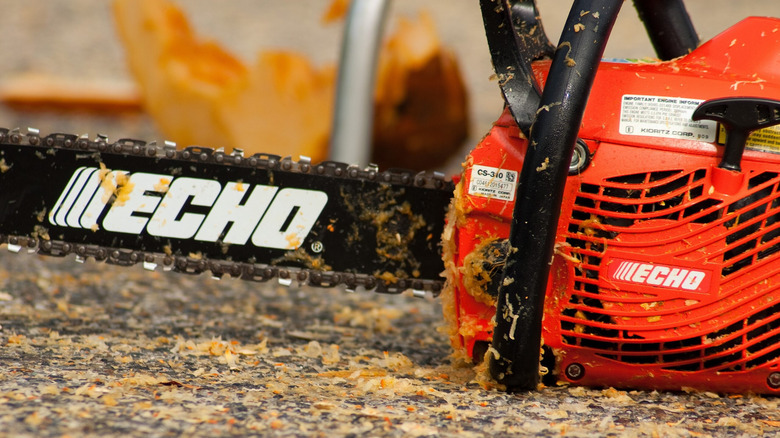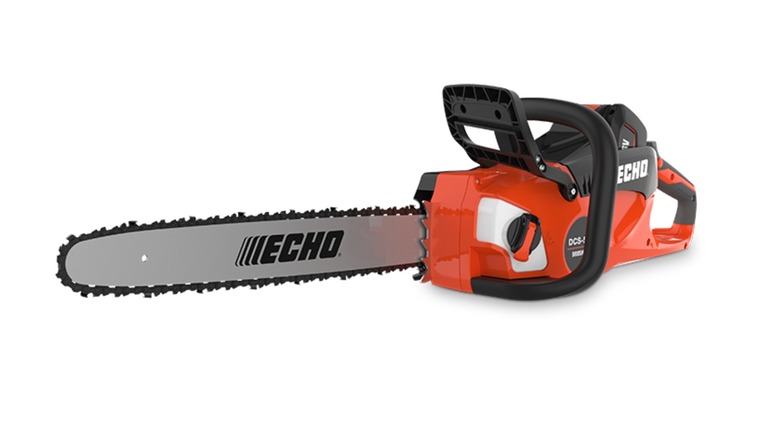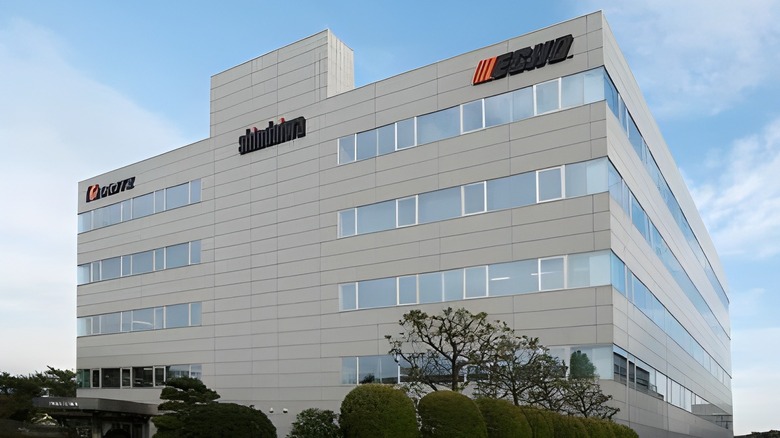Who Makes Echo Chainsaws And Where Are They Manufactured?
The story of Echo chainsaws begins in post-war Japan with a company named Kyoritsu Noki, founded in 1947, whose purpose was to build compact engines for agricultural machinery. Over the years, as the business refined its two-stroke engine technology, it transitioned to the forestry sector, introducing its first chainsaw in the 1960s.
Early models of the brand's chainsaw had durable housings, efficient engines, and dependable performance for heavy outdoor workloads, reflecting Kyoritsu Noki's engineering priorities and defining Echo's name. The company rebranded itself as the Kioritz Corporation in 1971 and formally launched the Echo brand for its professional-grade handheld tools.
Today, the Echo brand is owned and manufactured by Yamabiko Corporation, which oversees global production and preserves the bran's reputation for reliability. The company maintains its innovation and compact engine expertise to remain at the forefront, producing some of the best chainsaws you can buy. Echo has a favorable reputation for building quality products, and along with chainsaws, there are also Echo's commercial backpack blowers, in addition to its distinctive orange-and-black aesthetic which helped it stand out in a competitive Japanese and international market during that time.
The merger and U.S. expansion
Kioritz spent decades laying the foundation to earn the reputation as a trusted manufacturer of outdoor power equipment, a stature built around precision engine design and field reliability. That same culture remains today, influencing every modern Echo chainsaw and forming the basis of the company's global progress. This evolution eventually led to a major corporate merger and a wider manufacturing footprint. In 2009, Kioritz Corporation merged with Shindaiwa to form Yamabiko Corporation, marking a transformative era for Echo. The Yamabiko Corporation still owns and manufactures Echo products today.
The merger just combines Kioritz's engine and forestry equipment mastery with Shindaiwa's machining and industrial engineering capabilities to create a unified global manufacturer with deeper technical talents and a more efficient production process. In 1985, Echo solidified its presence in North America by building its U.S. headquarters and major manufacturing and assembly facility in Lake Zurich, Illinois, which became a central part of Echo's North American operations. It continued to expand on this move by adding more buildings and staff to support regional distribution, parts supply, and final assembly for select models.
This footprint expansion has led to strengthened partnerships with major American supply stores like Home Depot enabling the brand to reach both pros and homeowners. Echo assumed a vertically integrated manufacturing philosophy under Yamabiko, using a blend of automated systems alongside skilled labor and standardized quality controls for all regions. This method allows the company to maintain precision tolerances in engine manufacturing, reduce variability between batches, and support high annual production volumes. As Echo grew its chainsaws became globally recognized for consistency, durability, and predictable performance.
Manufacturing, sustainability and the modern era
Today, Yamabiko Corporation is the company behind every Echo chainsaw. Its corporate headquarters remains in Tokyo, Japan, but production is distributed across three major manufacturing regions. High-precision component manufacturing and the production of its core engine technologies are done in the company's Japanese facilities located in Yokosuka and Morioka, Japan, while the U.S. facility in Lake Zurich handles the assembly for many of the models sold in North America.
Additional manufacturing capacity located in China supports global supply and component production. The same quality management framework is implemented for all plants to make sure product performance is consistent, no matter where it comes from.
Echo and Yamabiko make sustainability a business priority across engine design and production workflows by incorporating two-stroke technologies designed to burn cleaner, thus reducing emissions without sacrificing power output. Lean manufacturing principles are in place in addition to high-efficiency machining to cut waste, and recycling programs in certain facilities repurpose plastics and metals used during production.
Combining worldwide manufacturing, strict quality standards, and environmental planning highlights Yamabiko's big picture philosophy of "bridging people, nature, and the future. For the most part, buyers can count on a chainsaw line with deep historical roots, consistent engineering quality, and a future-focused approach to environmental responsibility. Echo is also behind some of the best pole saws on the market.


